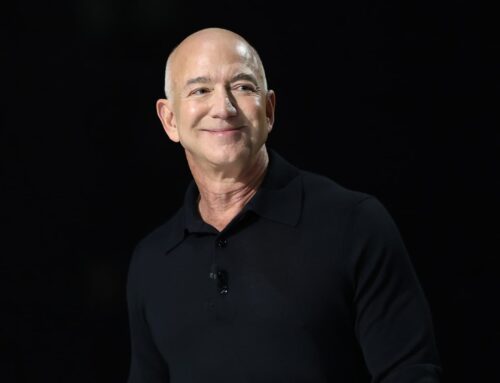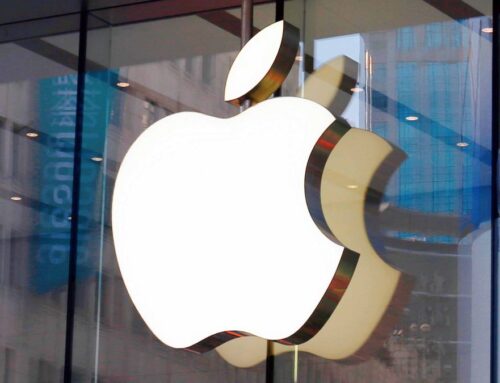Profit Drivers for Investors in 2025
December 31, 2024
Happy New Year!
I hope you had an enjoyable holiday season, and that you join me in looking ahead to a great year.
To be more specific, count me in the Bull category.
I foresee a good year for smart investors. Not to say there won’t be some twists and turns, some ups and downs along the way. There almost certainly will be, and after the impressive market performance in 2024, the consensus here at Cabot is there will almost certainly be some pullback.
That does not change the overall picture though, which is a continuing strong economy, strong stock market, and inflation and interest rates holding lower and even moderating further. I write today to give you some insights into the investing picture for 2025 (and beyond).
Before I do, I want to mention a couple of items. My regular readers know I was a government major and an elected municipal official and that while I personally enjoy the process of politics and government, with very few exceptions you should tune out politics when making investing decisions. The economy and stock market can and do perform well regardless of the party in power, and anyone who tells you otherwise is selling something.
That said, there are a couple of other non-partisan or bipartisan issues out of Washington that affect investors and have been in the news recently. I think they’re worth a brief discussion.
The first is abolishing the debt ceiling, which President-elect Trump has put back in the spotlight. The debt ceiling is an odd, purely self-imposed constraint with no basis in the Constitution or common sense.
To review, Congress passes legislation that entails certain expenditures. The debt limit constrains how much we can pay. The game Congress has been playing increasingly for the past four decades is to authorize programs that initiate spending, but when the bills come due, Congress threatens to not stand behind those expenses and pay those bills.
Imagine if a business claiming to be a viable ongoing concern presented your business with a purchase order for a certain amount of goods, but when you sent the invoice they said they had decided not to pay it. It would be hard to ever take the business seriously, and you would want to be compensated for the higher risk of doing business with them, if you ever decided to do so again.
Having a debt ceiling that needs to be periodically raised by Congress, separately from authorizing expenditures, creates an opportunity for members of Congress to grandstand at the expense of the credibility and stable reputation of the American government. That in turn costs taxpayers, and the prospect of government shutdowns makes the business environment less predictable, costing businesses money too.
Getting rid of this artificial and unnecessary constraint will reduce the opportunity to threaten the chaos that would ensue from the U.S. defaulting on its debt. Trump will have both houses of Congress, and this is an action Democrats have long favored, so with luck, we will finally be able to lay this issue to rest once and for all.
The other topic that I wrote about this past year was government officials trading stocks. For my regular readers, you may recall that I wrote about this last summer and posted a follow-up column as well with a roundup of some of the feedback I received from readers, as this clearly struck a chord. As a reminder, surveys have found bipartisan consensus on this issue, with 87% favoring barring trading in individual stocks. So I was pleased to see in December that President Biden has brought up this issue and given it more prominence.
The obvious potential for conflict of interests, both real and perceived, is simply far too great to permit this practice to continue. And the fact that our government is full of officials who have come into office with moderate wealth that has grown dramatically during their years of public service only serves to underline the problem.
Members of Congress, Supreme Court Justices, and senior members of the administration (President, Vice President, and Cabinet Members at the very least) have access to inside information and have influence over the fate of industries and specific corporations. Their investments should be limited to mutual funds and ETFs.
It is rare that I use these pages to advocate for anything, and especially for anything political in nature, but as I say, these are nonpartisan/bipartisan issues where the status quo hurts investors like you and me. And they can be cleaned up with a few simple actions on the part of Congress.
I also want to talk about what I see ahead in 2025 that may be of interest to investors.
· Dow 50,000: What an amazing period we live in. Back in 2008 and 2009, the market experienced a shock unlike anything since the Great Depression. Since then, with just one really bad year resulting from an unprecedented (in modern times) global pandemic, the stock market has provided impressive returns to investors. In March 2009 the Dow was at 6,626. In July of 2024, it surpassed 40,000 and on December 4 it peaked at just over 45,000.
With the conditions discussed above, Dow 50,000 seems probable by the end of 2025, driven to a greater extent by the rest of the stocks rather than Microsoft, Amazon or Apple. Not all stocks will perform the same however, and our Cabot analysts will be tracking developments and doing the research to identify likely winners.
· Mass deportations, tariffs and trade wars: If they were to come to pass, as has been discussed, they would drive up inflation, disrupt supply chains, cause furloughs and layoffs, and generally disrupt the U.S. and global economies.
For those reasons, I don’t think these will be done on anything approaching the large scale that has been discussed by the incoming President. I do think there will be much narrower, targeted actions taken. However, these are important areas to keep an eye on for investors. Cabot’s analysts will make sure our readers know what’s going on and what actions to take in response.
· Productivity gains: The productivity gains are substantially driven by adoption of AI in a growing range of uses. The sky’s the limit for these AI-based productivity gains, and there’s no telling how high we could fly, but they will be substantial and will continue to snowball for many years to come.
And there’s also the investment opportunities of the companies that are enabling the AI revolution. Nvidia is NOT the only company seeing huge gains from AI-related products and services. These are developments I have written about previously.
· Shifting money into stocks: There is nearly $7 trillion that is now sitting on the sidelines in money market funds. Those rates have been higher for the last couple of years, but they have now been easing for some time.
When they tick below 4%, many people will start to feel uncomfortable missing out on the strong stock market gains – and they’ll be right. The growing delta between the money market funds and the market gains will justify the greater risk of equities, and money will shift. Big money. Money that will push demand and prices higher.
· Investing outside the US: 70% of equity value is in the U.S. stock market. This is the result of the stability provided by a long-standing democratic government and rule of law that provides a predictable and stable business environment. With today’s information technology, businesses around the world operate in a more transparent environment that can give more investors confidence in investing in other parts of the world.
And, in spite of the massively lopsided investment in U.S. stocks, the U.S. economy represents about 15% of global GDP. That is still a huge presence but nowhere near the stock market share. It is almost certain that over time more investors will be attracted to larger potential returns elsewhere in the world.
This would be accelerated by a more rapid shift of money from money market funds (see above) to stocks. My colleague Carl Delfeld, Chief Investor of Cabot Explorer has written on this global rebalancing at greater length.
Sincere wishes for a happy, healthy, and profitable new year.
Yours for investing success,
Ed Coburn
President, Cabot Wealth Network
Publishing Independent Investment Research Since 1970
Search
RECENT PRESS RELEASES
Related Post




